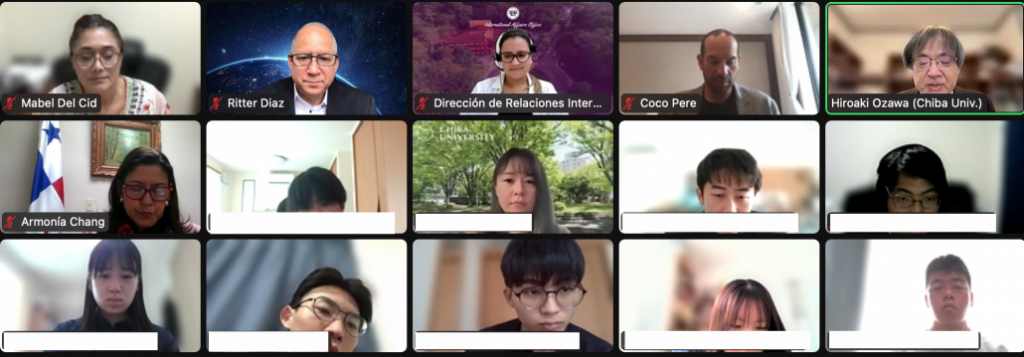Closing Ceremony of Sixth Short Online Program Delivered by the Panama Technological University to Chiba University

On March 2nd, the closing ceremony for the sixth short online program, organized by Panama Technological University for students of Chiba University, took place, with the support of the Japan Association for the Promotion of Latin America and the Caribbean (JAPOLAC).
During the ceremony, Dr. Ritter Diaz, Representative Director of JAPOLAC, extended congratulations to the administration and professors of Panama Technological University, as well as to the students, professors, and staff at Chiba University, for the successful completion of the program. Dr. Diaz highlighted that despite English not being their native language, the students embraced the opportunity to delve into Panama’s history, its canal, logistics, and nature, broadening their horizons beyond the confines of Japan. Their immersion in Panamanian culture, history, and society has been truly enriching, fostering cross-cultural understanding and appreciation.
Dr. Diaz also emphasized the integration of digital tools and processes into the fabric of education, both locally and internationally, offering a more cost-effective avenue for universities, professors, and students to engage in academic pursuits at the international level. He commended Chiba University and Panama Technological University for their enduring partnership and announced the forthcoming seventh online program in Summer 2024.
The closing ceremony also featured the distinguished presence of His Excellency Carlos Pere, Ambassador of Panama to Japan; Honorable Ms. Armonia Chang, Deputy Director of International Cooperation at the Ministry of Foreign Affairs of Panama; Dr. Hiroaki Ozawa, Vice-President for Education at Chiba University; and Mrs. Mabel Del Cid, Director of International Relations at Panama Technological University.
The short online programs are closely coordinated by JAPOLAC. The courses are meticulously designed to impart practical knowledge to students through digital platforms, with the primary objective of inspiring them to explore further educational opportunities in Latin American and Caribbean countries. They also provide an excellent opportunity for students to immerse themselves in international communication. In essence, these programs serve as a remarkable example of international academic cooperation, delivering value-added education to Japanese students.
